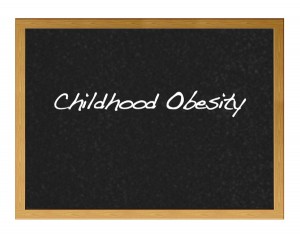 Most of the research on childhood obesity has shown that carrying excess weight in childhood increases the risk of health problems later in life. Adding to these concerns is a new study which found the health problems of obesity may in fact be more immediate. Researchers at UCLA reported that obese children are at almost twice the risk of having three or more reported medical, mental or developmental conditions, compared to kids who are not overweight. Additionally, overweight kids had a 1.3 times higher risk of having these health problems compared with normal weight kids. From their large, population-based study (43,300 kids between the ages of 10 and 17), the researchers found that obese children were more likely than their normal weight peers to have quite a few conditions. These included: poorer overall health; a greater tendency toward emotional and behavioral problems; ADHD; depression; higher rates of grade repetition and missed school days; conduct disorder; learning disabilities; developmental delays; headaches; allergies; asthma; bone, joint and muscle problems; and ear infections.
Most of the research on childhood obesity has shown that carrying excess weight in childhood increases the risk of health problems later in life. Adding to these concerns is a new study which found the health problems of obesity may in fact be more immediate. Researchers at UCLA reported that obese children are at almost twice the risk of having three or more reported medical, mental or developmental conditions, compared to kids who are not overweight. Additionally, overweight kids had a 1.3 times higher risk of having these health problems compared with normal weight kids. From their large, population-based study (43,300 kids between the ages of 10 and 17), the researchers found that obese children were more likely than their normal weight peers to have quite a few conditions. These included: poorer overall health; a greater tendency toward emotional and behavioral problems; ADHD; depression; higher rates of grade repetition and missed school days; conduct disorder; learning disabilities; developmental delays; headaches; allergies; asthma; bone, joint and muscle problems; and ear infections.
“This study paints a comprehensive picture of childhood obesity, and we were surprised to see just how many conditions were associated with childhood obesity,” said lead author Dr. Neal Halfon, UCLA professor of pediatrics, public health and public policy. The findings should serve as a wake-up call to physicians, parents and teachers, who should be better informed of the risk for other health conditions associated with childhood obesity so that they can target interventions that can result in better health outcomes,” concluded Dr. Halfon.
Just prior to the publication of this study, the results of changes to the New York Special Supplemental Nutrition Program for Women, Infants, and Children (WIC) were released. The state of New York was the first to test out a new package of food vouchers two years ago, which added fruits, vegetables, and whole grains, substituted low-fat for whole milk, and limited fruit juices. The New York State WIC program also added to their core services a healthy lifestyle promotion, including increasing physical activity levels and reducing TV time. Two years after the changes were implemented, there was a 6 percent drop in obesity among 1 year-olds on the program, from 15.1 to 14.2 percent, and 3 percent among 2-4 year-olds, from 14.6 to 14.2 percent. Mary Ann Chiasson, DrPH, Vice President of Research and Evaluation at Public Health Solutions said, “In the two years after the changes to WIC were rolled out in New York State, an estimated 2,300 more New York children were normal weight, not overweight or obese.” The report also showed that the kids’ consumption of low/nonfat milk increased, as did daily consumption of fruit and vegetables. Television screen time decreased overall.
The results of the WIC nutrition improvements show that small changes can have an impact on childhood obesity, perhaps sparing kids from health problems both during childhood and in the long-term. You can read the American Heart Association’s tips for addressing obesity in children here.
Dr. Kim Marley, expert bariatric surgeon in Johnston, spoke with us about the research. “This is a very interesting study that confirms what we are seeing on a daily basis in our practices: we are getting heavier and less healthy as a nation,” he said. “This affects all age groups but is especially concerning in our children. Not only are they less healthy now, but are rushing down a road toward early death, poor health, and a decreased quality of life. It is encouraging to see initiatives successfully targeting behaviors that will help reverse this trend. It seems our grandmothers were right when they told us to eat our vegetables and go outside and play.”
Related Reading: Obese Teens Feel Healthy, but Blood Tests Show Otherwise






Nutrition & Lifestyle